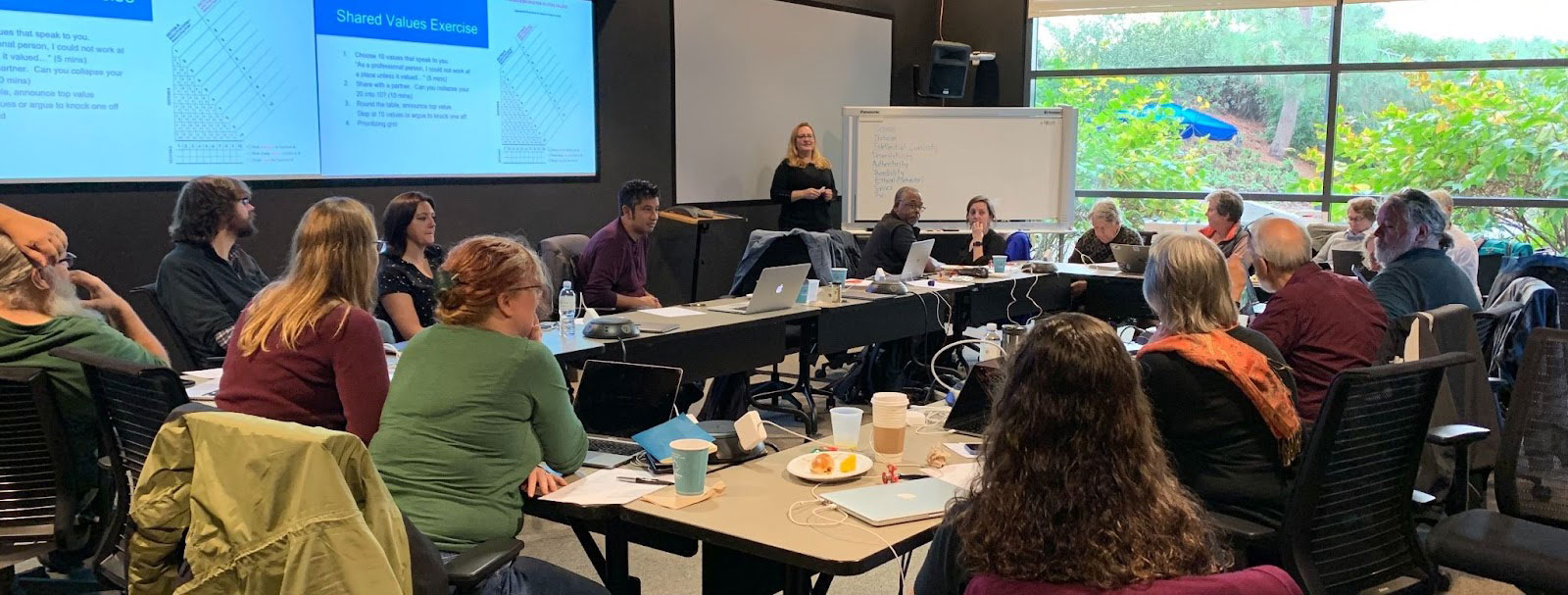News
San Diego Supercomputer Center-Based EarthCube Office Extended for Transition
Published May 04, 2022
Kimberly Mann Bruch, SDSC External Relations

Kirkpatrick leading the EarthCube Leadership Council and EarthCube Office in a Shared Values Exercise in 2019. Credit: EarthCube Office
For nearly a decade, the National Science Foundation (NSF)-supported EarthCube community has been transforming geosciences research by developing and maintaining a well-connected and facile environment that improves access, sharing, visualization and analysis of data and related resources. Thanks in large part to tremendous community demand, the EarthCube Office (ECO) cooperative agreement with the NSF has been extended by six months, through the end of 2022.
Led out of the San Diego Supercomputer Center (SDSC) and the Scripps Institution of Oceanography at UC San Diego, the EarthCube Office transition funding will help implement sustainability recommendations to ensure lasting impact of the overall initiative.
Highlights of the extended agreement include the following:
- Supporting governance sustainability planning, facilitating actions suggested by the sustainability panel and taking concrete steps that go beyond initial efforts and that will preserve the value created under EarthCube.
- Leaving the Earth Sciences data and software portal, GeoCODES, in a more sustainable state with a richer feature set. Additional outreach time will help to build a sustainable community around the open source codebase.
- A Fall 2022 EarthCube retrospective event, focused on what EarthCube has accomplished to date as well as looking ahead and to provide a venue for the community to comment on what is needed.
- A booth at AGU 2022 and support for the EC community in activities that will be transitioning to AGU.
“It has been a privilege to serve the geosciences community through the supportive activities provided by the EarthCube Office,” said EarthCube Principal Investigator Christine Kirkpatrick, director of the SDSC Research Data Services division. “NSF’s portfolio has funded not only world-class Earth Sciences research, but also projects that provided new software, data repository methods, novel governance models, FAIR data practices and a host of other cyberinfrastructure improvements with a positive impact beyond GEO.”
“NSF’s support to extend ECO to see sustainability actions through and to support EarthCube’s stakeholders, shows the power of the community’s voice, as well as the tremendous benefit of EarthCube’s collective achievements,” she said.
About San Diego Supercomputer Center
SDSC, located at UC San Diego, is a leader in data-intensive computing and cyberinfrastructure, providing resources, services and expertise to the national research community, including industry and academia. SDSC supports hundreds of multidisciplinary programs spanning a wide variety of domains, from earth sciences and biology to astrophysics, bioinformatics and health IT.

